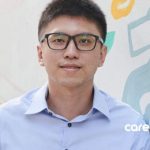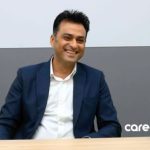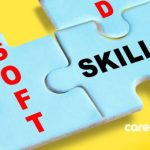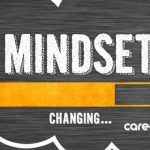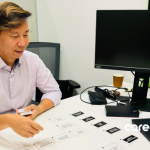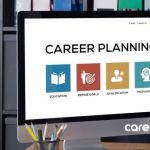- Employers in Singapore are looking to add more persons with disabilities to their workforce and are making suitable job accommodations.
- Various government initiatives are also actively aiding persons with disabilities to find jobs and reskill and upskill if needed.
- Inclusive hiring is here to stay, with targets set to have 40% of working-age persons with disabilities employed by 2030, up from about 30% in 2021.
For Singaporeans with disabilities, some may worry that being honest about your disability may hamper your job search or employability.
There may also be concerns that potential employers have reservations about your ability to get the job done, either during the hiring process or after joining the company.
While we can’t tell you that your career journey and job search will always be smooth sailing, the employment market in Singapore is evolving. Employers are becoming increasingly open to hiring those with disabilities and making accommodations to roles to aid them at the workplace!
Workforce Singapore’s (WSG) Employment Support for Persons With Disabilities has aided more than 3,400, into jobs with close to 2,000 companies between January 2016 and September 2022.
The programme also provides employers with grants to help them redesign jobs that will allow their employees with disabilities to work more productively and efficiently, in a safer and more accessible work environment.
Between the same time frame, more than 130 employers have also tapped on WSG’s Job Redesign Grant to redesign jobs and create more accessible workplaces for over 280 employees with disabilities.
In fact, there are real business benefits for hiring persons with disabilities, shared Tan Eng Tat, the director of employment and employability at SG Enable (the focal agency for disability and inclusion in Singapore).
“Inclusive hiring can lead to increased productivity and higher staff retention rates.”
“Besides having a broader talent pool to hire from, inclusive hiring brings fresh perspectives and innovative ideas to the workplace and enhances the corporate culture in which employees develop empathy and have a deeper appreciation of how everyone can contribute to the organisation’s success,” he shared.
Julia Ng, WSG’s assistant chief executive, said: “We need to move away from the misconception that a person’s disability is an inability to do the job.
“Leaders need to set the right tone and not picture the employment of persons with disabilities as just a pay cheque.
Persons with disabilities have their unique capabilities and talents and having a job is akin to a second home for them. What they need is a chance.”
She revealed plans are in the works between WSG and SG Enable to make the MyCareersFuture job portal more friendly for persons with disabilities to navigate and apply for jobs, at the same time encouraging employers to post more jobs suitable for them.
“We are also exploring ways to improve inclusivity at our career events, such as prioritising venues that are barrier-free and accessible, and also highlighting jobs that are suitable for persons with disabilities. There are benefits that companies can unlock by adopting inclusive practices,” Julia added.
The Singapore government is also looking to support persons with disabilities in their job search, with the Enabling Masterplan 2030 (EMP 2030) providing initiatives for employers to support persons with disabilities in the workplace.
The plan targets to have 40% of working-age persons with disabilities employed by 2030 with the help of alternative employment models such as micro-jobs or temporary tasks, up from about 30% in 2021.
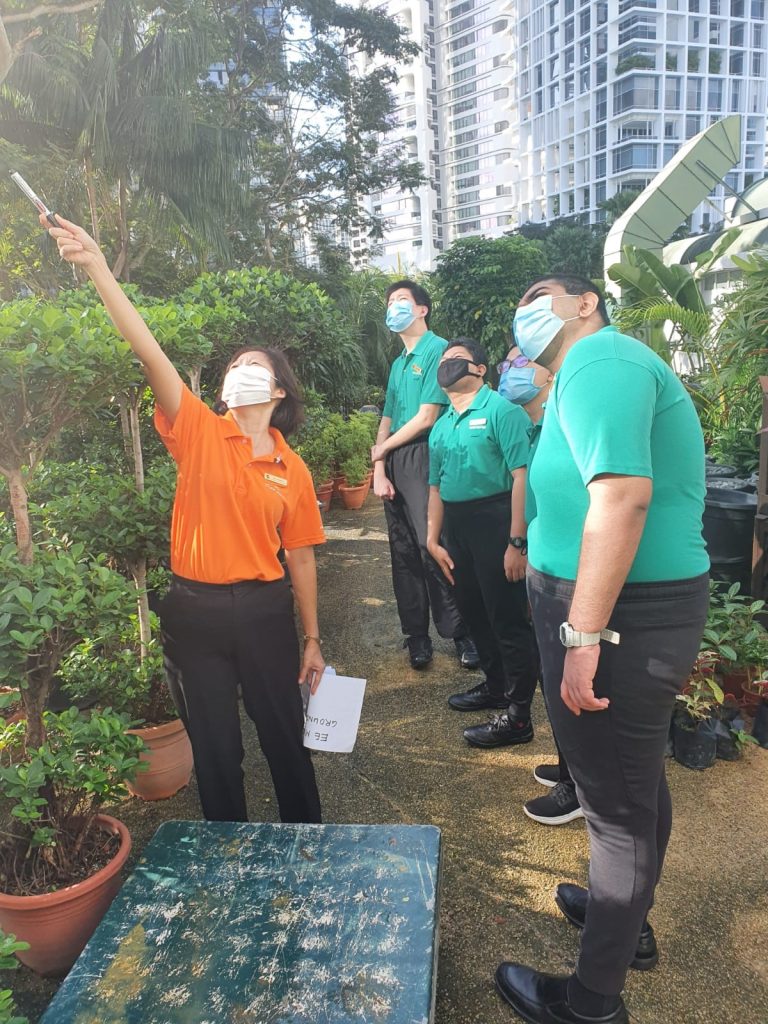
Shangri-La, an employer making job accommodations for persons with disabilities
One key aspect of how Singapore employers are stepping up is reasonable job accommodations.
These are adjustments to the job or work environment that make it easier or possible for persons with disabilities to do their work, and factor in how they:
- Help persons with disabilities perform their jobs
- Do not cause undue hardship to both employer and employees
- Maintain the key business needs of the employer
There sharp increase in companies interested in hiring persons with disabilities comes from industries such as tech, logistics and healthcare, as well as hospitality and food and beverage (F&B) sectors.
One such company in hospitality that has found making job accommodations for persons with disabilities is Shangri-La Singapore, who has been hiring persons with disabilities since 2010! To date, there are nine staff with disabilities on their team in Singapore.
During the Covid-19 pandemic, the hospitality sector was hard hit due to lockdowns and restrictions on global travel. Despite that, Shangri-La Singapore maintained its policies on inclusive hiring and engaged four interns with autism and/or intellectual disabilities in June 2020.
This was part of SG Enable’s School-to-Work Transition Programme, which offers customised training pathways and work options for students who have the potential to work and helps transit graduates from special education schools to employment.
Over four months, the interns were rotated between the landscaping, linen, stewarding, and housekeeping departments as part of an evaluation process to find job matches for them. They were also aided by Shangri-La’s staff and SG Enable’s job coaches to ensure a safe and pleasant work environment.
Job accommodations that were made include:
- Adjustments to work tools used: Interns assigned to the landscaping department had difficulties connecting the water hose to the garden’s tap. The taps were redesigned to enable them to do so easily without using other tools or risking injury.
- Flexible working hours: To ease the interns’ transition from school to work, Shangri-La Singapore allowed them to work shorter hours during their initial months, before they embarked on six-hour day shifts after three months into the job.
- Better communication protocols to support their disabilities: Persons with intellectual disabilities generally learn better with simpler instructions, short phrases, and images incorporated into training materials and demonstrations. The hotel labelled the kitchen cabinets to indicate where various items should be stored. This not only helped the interns, but also benefitted other new staff.
“These job accommodations did not require big budgets or resources. Instead, it was more about matching job roles and making adjustments to suit the interns’ abilities, with staff support and a commitment to providing an inclusive workplace environment,” shared Mr Tane Picken, General Manager, Shangri-La Singapore.
Digitalisation and work-from-home (WFH) provide new career opportunities for persons with disabilities
In addition, digitalisation and WFH arrangements in recent years have presented various opportunities for persons with disabilities while promoting workplace disability inclusion.
Eng Tat believes WFH arrangements ease commuting challenges as they need not travel to the office.
He added: “The rollout of more accessibility features by Microsoft and Apple, along with more organisations showing greater interest in making their products and services e-accessible. This also means that persons with disabilities have greater access to information and different modes of communication, enabling them to work effectively remotely.
“Some of these remote jobs include managing their company’s social media, processing and digitising data, and graphic design.”
With more flexible working arrangements, employers can continue to put in place reasonable accommodations that help persons with disabilities work and thrive.
These include offering flexible work arrangements, improving workplace accessibility, redesigning their hiring process and job scopes, providing assistive technology (e.g., screen readers for persons with visual impairment, anti-tremor mouse adapters for those who exhibit shaky hand movements) and enhancing e-accessibility.
Employers can leverage the Open Door Programme Job Redesign Grant, which is funded by Workforce Singapore and administered by SG Enable, to defray costs in implementing these workplace accommodations.
These ‘hardware’ changes — along with the ‘heartware’ of building a disability-inclusive workplace culture — will be integral to enabling and empowering persons with disabilities at work.
Reskilling Singaporeans include persons with disabilities
In his 2022 National Day message, Prime Minister Lee Hsien Loong shared how Singapore’s response to a complex economic environment in a post-Covid world needed to be to “transform our industries, upgrade skills, and raise productivity.”
During his National Day Rally speech, he added: “We do not have much influence over global inflation.”
“What is within our power is to make ourselves more productive and competitive, because then our workers can earn more, and more than make up for the higher prices of food, fuel and other imports.
“That way we can all become better off, in real terms.
“This requires us to press on with economic upgrading and restructuring; redouble our transformation efforts; and encourage workers to upgrade their skills at every opportunity!”
This call-to-arms includes our fellow citizens who are persons with disabilities, of course.
Darren’s career journey
A great example of how persons with disabilities can benefit from upskilling is the career journey of Darren See, a 42-year-old engineer, who is also deaf.
In 2020, Darren left his job as a draughtsman in a manufacturing firm after his probation ended. Instead of relying on his diploma in electrical engineering to find his next job, he decided to make a strategic and calculated career change.
To him, upgrading and enlarging his skill sets were logical steps to staying relevant and being employable.
“If I don’t get training, it will be impossible to find a new job. So, I need to upgrade myself continuously,” Darren said. “Even though my design skill is in 3CAD, I decided to switch from the manufacturing industry to the construction industry.
“I figured that the best thing to do is to find a job that is in high demand. And Building Information Modelling (BIM) expertise is in high demand.”
Darren subsequently enrolled in a BIM Asset Data Management training course supported by SG Enable’s Open Door Programme (ODP) Training Grant from May to July 2019.
BIM is an intelligent 3D model-based process that enables architects, engineers, and construction professionals to efficiently plan, design, construct and manage buildings and infrastructure.
Through the ODP Training Grant administered by SG Enable, Darren was provided with a 90% course subsidy, with an additional training allowance.
Attending the BIM course turned out exactly to be what Darren needed to give his career a boost. With assistance from SG Enable’s Job Placement and Job Support programme, Darren received a job offer within a month of completing the course.
He was hired as an assistant BIM consultant and engineer, earning more than he did in his previous job. Recently, he was promoted and is now a BIM/VDC (Virtual Design and Construction) Engineer.
“My employer looks at what I can do rather than at my disability,” said Darren.
In fact, the BIM course wasn’t Darren’s first training course. Since 2018, with the assistance of his SPD job coach, Mr Richard Goh, Darren has undergone various training courses to enhance his digital competencies and employability.
SPD, previously known as the Society for the Physically Disabled, is a local charity set up in 1964 to help persons with disabilities maximise their potential and be a part of mainstream society.
Richard commended Darren on his willingness to step out of his comfort zone, “Darren’s positive attitude, perseverance, and hard work play a vital role in keeping him employable.”
His course trainer from BIMLife Pte Ltd, Loy Seah, added: “Darren is very charismatic and got on well with his coursemates. We saw how much effort he made to keep up with the class.”
Loy added, “We believe it is important for persons with disabilities to go for training and for training providers to simulate real scenarios from the working environment. It will better prepare the trainees to face the demands in the workplace.”
What programmes and help can persons with disabilities in Singapore get for their job search?
Eng Tat shared: “SG Enable also has programmes for skills development, career preparation, and transition-to-work programmes to increase jobseekers’ confidence and enhance their employability.” These include the following:
- Students from Institutes of Higher Learning (IHLs) can participate in the IHL Internship Programme and RISE Mentorship Programme, as well as take advantage of career coaching and career preparatory workshops.
- For work-capable special education school graduates, our School-to-Work Transition Programme offers customised training pathways and work options so that they can successfully transition to employment. We have a similar programme — the Hospital-to-Work Programme — to help persons with acquired disabilities transition to employment.
- Persons with disabilities who wish to upskill and enhance their employability can register for courses curated and offered by Enabling Academy, a disability learning hub by SG Enable. With more than 210 accessible training courses in areas such as information and communications technology, F&B, advertising, design, sales and marketing, persons with disabilities can tap these courses to develop skill sets that are relevant to different industries. They can also tap the Temasek Trust-CDC Lifelong Learning Enabling Fund administered by SG Enable to defray their learning costs.





